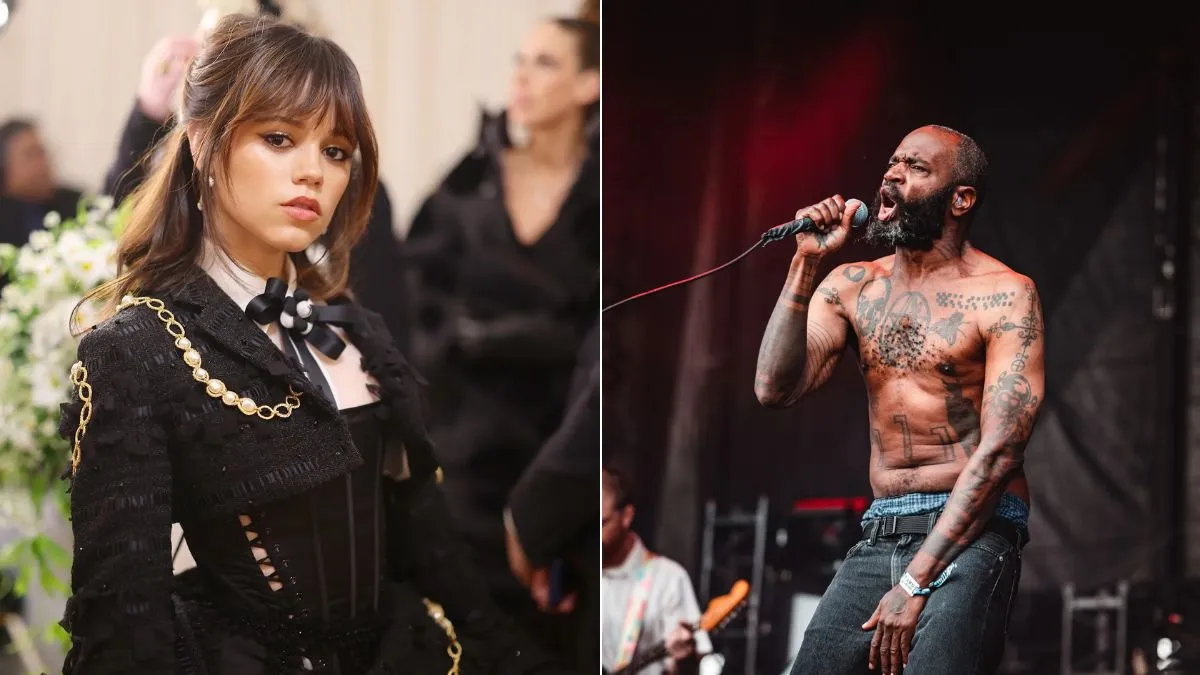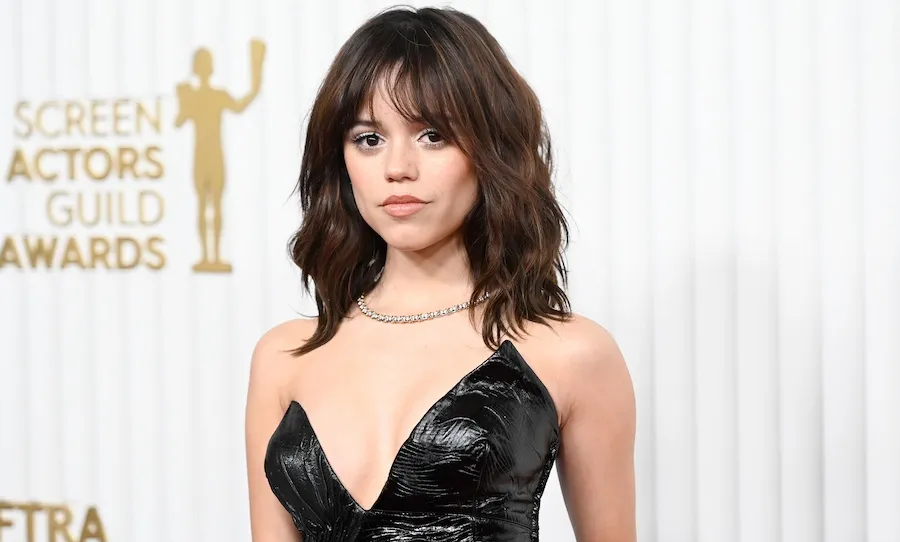

Jenna Ortega and the Death Grips: When Fashion Meets Underground Music
When a celebrity like Jenna Ortega casually pulls out a Death Grips hat in Vogue’s high-profile series “What’s In My Bag?”, the moment transcends accessory fashion. It becomes a cultural artifact, a snapshot of a generational mindset where mainstream visibility and underground loyalty are no longer opposites—they coexist in dynamic tension.
Beyond the Bag: Why Ortega’s Revelation Matters
At first glance, it might seem trivial: a young star sharing items from her purse. But Ortega’s decision to highlight the Death Grips cap—first, no less—was deliberate. Whether conscious or instinctive, the act underlines several key truths: That fandom doesn’t have to be performative, That experimental art has a place in mainstream lives, And that identity today is no longer polished into perfection—it’s messy, multi-dimensional, and proudly so.
Ortega didn’t just name-drop. She told a personal story, described a sweaty London concert, and voiced her support for a group known for its abrasive sound and anti-industry ethos. In doing so, she aligned herself with a community that values authentic expression over image control.
Death Grips as Symbol: Noise, Chaos, Truth
To truly understand why Ortega’s gesture is so resonant, we must understand Death Grips.
The group, formed in 2010 by MC Ride (Stefan Burnett), Zach Hill, and originally Andy Morin, burst onto the scene with an aggressive blend of industrial hip hop, punk, and electronic noise. Their music is visceral, disorienting, and politically loaded—lyrics confront surveillance culture, identity collapse, and raw emotion.
They’ve rejected traditional press cycles, ghosted major record labels, and dropped albums unannounced. At one point, they canceled a major tour by releasing a photo of a napkin that read, “We are now at our best.” Their anti-commercialism made them underground legends. Their live shows? Known for unrelenting energy, minimal lighting, and a complete lack of crowd-pleasing compromise.
For Ortega—a Gen Z actress constantly in the public eye—to openly align with this kind of artistic chaos is rare and powerful. It’s not about chasing shock value. It’s about affirming artistic allegiance in a media culture saturated by algorithmic trends.

The Gen Z Shift: Multilayered Identity Over Marketable Uniformity
Gen Z, the generation Ortega both represents and speaks to, is marked by fluidity—in gender, genre, aesthetics, and allegiance. Unlike previous generations that neatly boxed stars as pop, rock, hip-hop, or indie, today’s tastemakers inhabit blurred boundaries.
A young woman can star in a Netflix gothic revival, attend the Met Gala, and still mosh to Death Grips. That’s not a contradiction—it’s coherence in chaos. Ortega’s embrace of raw underground music tells Gen Z fans that they don’t have to curate themselves to fit into neat categories. Their love of both Prada and punk, cinema and SoundCloud, can peacefully—and powerfully—coexist.
Subcultural Capital in the Age of Celebrity
What Ortega is doing—perhaps unintentionally—is amassing what sociologist Sarah Thornton called “subcultural capital.” This is the kind of cool you don’t buy; you earn it by being authentic, connected to non-mainstream cultures, and able to navigate niche spaces.
By referencing Death Grips, Ortega signals depth, unpredictability, and a cultural fluency that extends beyond what the PR machine provides. It makes her more human to some, and more compelling to others. But most of all, it grants her cultural credibility in circles that don’t typically embrace mainstream stars.
When A Hat Carries a Message
Fashion often functions as visual language, and Ortega’s Death Grips cap is no exception.
In a Vogue context—where designer bags, luxury labels, and perfect lighting dominate—a worn, likely sweat-stained cap from a controversial noise band becomes an act of subtle defiance. It’s a reminder that not all fashion must be polished, and not all status symbols must be expensive.
It echoes how music fans use merch not just for identity, but for memory. That cap likely holds residue from shows, from airport naps, from life lived beyond red carpets. It’s more archive than accessory.
Echoes in the Indie World: Wednesday, Bleeds, and Shared Ethos
Ortega’s appreciation for Death Grips also resonates with the narrative-driven, raw emotion of indie band Wednesday. Their upcoming album, Bleeds, is filled with Southern gothic imagery, gritty storytelling, and unvarnished emotion.
Lead singer Karly Hartzman, who name-dropped Death Grips in their single “Pick Up That Knife,” shares Ortega’s tendency to blend personal vulnerability with brutal artistic expression. Hartzman has described the record as a “spiritual successor” to their previous work—infused with both personal pain and communal storytelling.
This cross-medium alignment—film, fashion, music—signals a shared cultural moment. Artists like Wednesday and fans like Ortega are gravitating toward intensity, toward feeling, and away from polished artificiality.

A Cultural Touchpoint, Not Just a Clip
What started as a short Vogue video has now become a cultural moment—discussed in Reddit threads, tweeted by indie music blogs, and shared by fans across both the fashion and music spheres.
Why? Because it resonates.
It speaks to:
-
The hunger for authenticity in a curated world
-
The blurring line between mainstream and underground
-
The way fandom, music, and identity are emotional, not just transactional
Ortega’s Ongoing Evolution
Ortega has already proven her artistic range—from the haunting darkness of Wednesday, to the horror of Scream, to her rising influence in fashion. But this moment adds another layer. It tells us she’s paying attention, engaging with culture deeply—not just as a figure on magazine covers, but as a person with taste, memory, and conviction.
The worn Death Grips hat is the opposite of a marketing stunt. It’s a personal artifact that fans now treat as symbolic—proof that their world is seen, heard, and maybe even shared.
Final Reflections: More Than Merch
We often underestimate small things—like what’s in a bag. But when Jenna Ortega pulled out that Death Grips cap, she pulled out a cultural thread that connects celebrity to community, fashion to fandom, and mainstream attention to underground rebellion.
In 2025, where sincerity is scarce and virality fleeting, this moment endures because it was real. And realness, like the music Ortega loves, doesn’t always sound smooth—but it echoes long after.


















